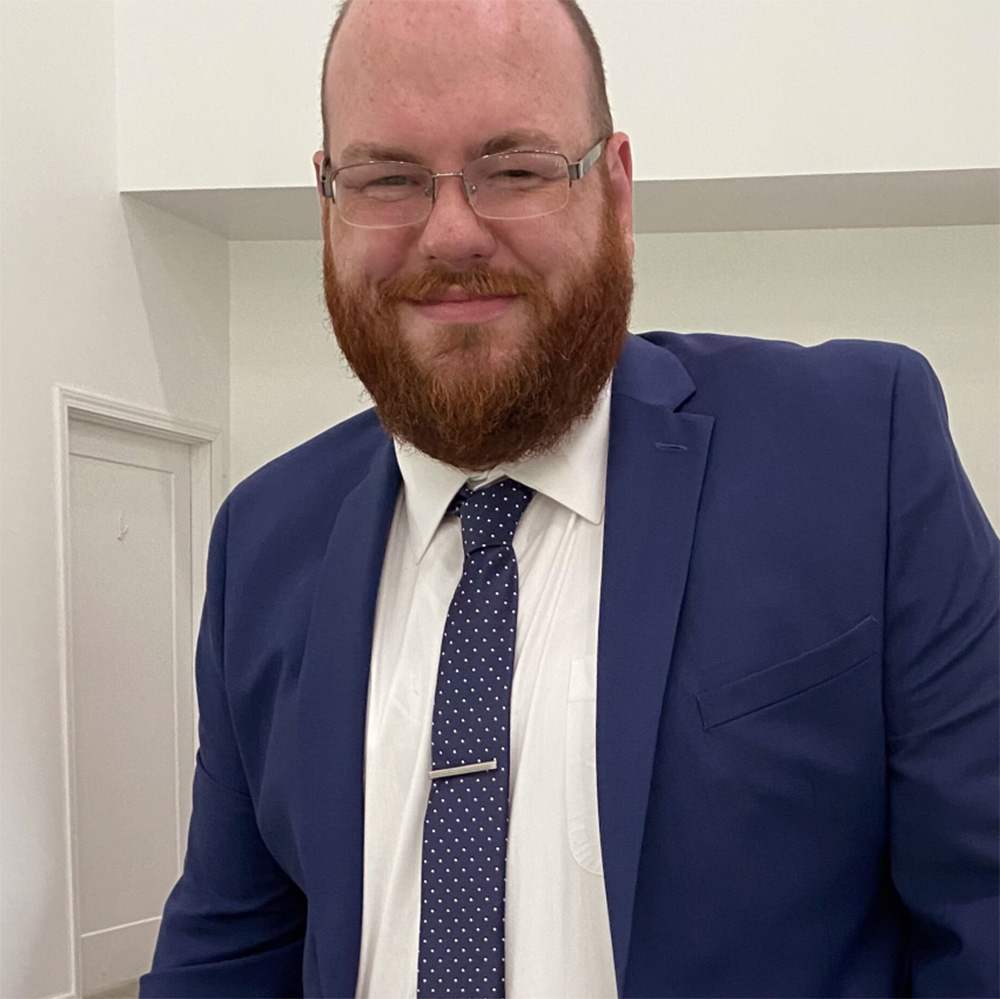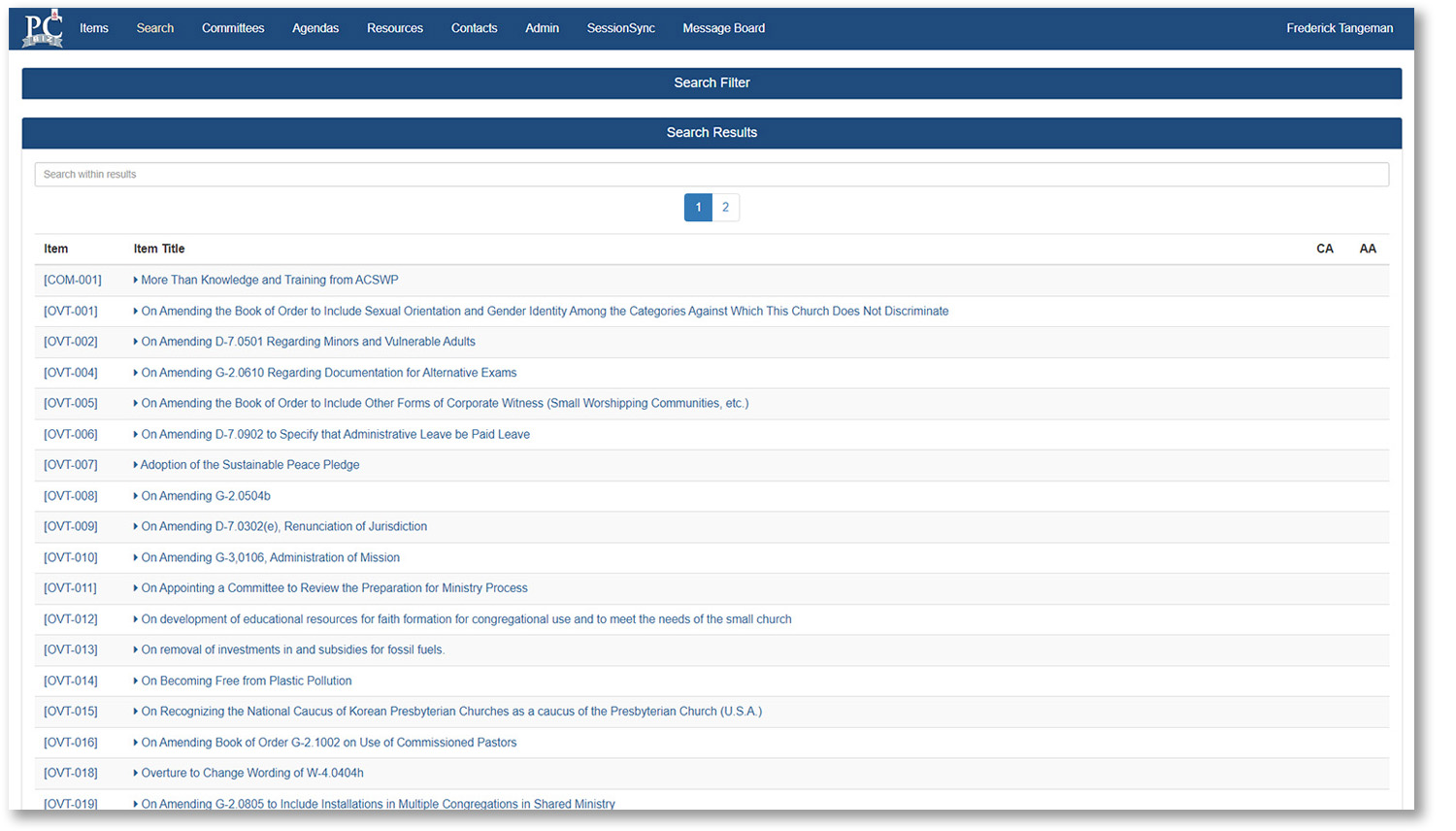To say that Ken Tolley has been busy since the most recent General Assembly deadline for overtures with constitutional implications is a massive understatement. Kind of like saying the Manager of GA Business — a self-professed “polity nerd”— has merely enjoyed his latest call.
“It’s been really fascinating,” Tolley said about his role in the Office of the General Assembly receiving overtures from presbyteries, in addition to the concurrences overtures require.

Ken Tolley image provided

Ken Tolley image provided
On February 26, which was also the deadline for agency and committee reports for the 226th General Assembly, Tolley had 135 new emails in his pcusa.org inbox, most about business items. To date, 34 overtures have been submitted by presbyteries, 45 reports from GA committees and commissions and 30 reports from church agencies.
Working closely with Kate Trigger Duffert, Director of General Assembly Planning, Tolley communicates with presbyteries submitting overtures and posts them to PC-Biz, the online home for all General Assembly business. He will team up with Trigger Duffert to assign business items to committees in advance of this summer’s meetings.
“I enjoy seeing all the intelligence and intent behind overtures and reports,” Tolley said. “It’s great to open up emails and see how presbyteries in particular have identified who they can help while also seeking God’s will in the denomination.”
Across the range of proposed business, including items focused on addressing social issues like gun violence, migration and climate change, Tolley said presbyteries and GA groups “consider the people their proposal would impact,” including individuals who might not support their measure. “Presbyterians have this desire for unity, even on the most controversial topics.”
He’s also been impressed by the number of overtures and reports that show coordination between councils and advocacy groups, with submissions sometimes containing similar text in the recommendation or rationale sections.
To Tolley, that coordination shows the connectionalism Presbyterians value.
“It doesn’t matter where an overture starts,” he said, “as long as the presbytery agrees the overture should happen.”
Asked if any trends stood out to him so far in this assembly cycle, Tolley mentioned overtures about ordination, something he’s been extra intrigued by because he is going through the ordination process himself.
He pointed to three related overtures about ordination — overtures 19, 20 and 21 — that his home presbytery has already concurred with. “In West Virginia, like in so many other places, we’re feeling the shortage in pastors.”
Another overture, Overture 18, asks for the word “wisdom” to be added to the ordination questions for ruling elders, deacons and ministers of the Word and Sacrament — which could change the words Tolley and so many others speak at future ordinations and installations.
Just as overtures and reports can share focuses, items such as Overture 29 (“On Support of the People of Guatemala”) can recommend the use of Presbyterian connections and resources to aid efforts not addressed in other business. During committee and plenary discussions, such overtures can inspire assistance efforts to other places and other causes.
“When we can give voice to suffering it is an aspect of partnership and mission,” Tolley said. “The Church can use that specialized knowledge to help in a wider way.”
For him, the many ways an assembly can respond to business is part of what makes the process so special, since the work to discern business is done prayerfully, just like the drafting.
“But I’m one of those people who gets choked up reading the Book of Order,” Tolley joked.

Find business items on PC-Biz: https://www.pc-biz.org/search
Many of this year’s items recommend actions affirming or building off of previously articulated church values, one of which is equity. Business items are translated into Korean and Spanish by Global Language Resources in the PC(USA)’s Administrative Services Group.
“I think it’s wonderful the church is doing translation,” Tolley said. Noting that the PC(USA) includes thousands of people who speak dozens of languages, he added, “A person’s grasp of English doesn’t determine what they can contribute.”
Now that the Committee on the Office of the General Assembly has approved 12 committees for General Assembly 226, one of Tolley’s next jobs is working with Trigger Duffert and other GA planners to create each committee substructure and generate preliminary business item assignments. As submissions arrive, Tolley flags overtures and reports by topic with the idea of putting them together with related business.
Returning to the ordination example, he said that Overture 01 (“On Amending the Book of Order to Include Sexual Orientation and Gender Identity Among the Categories Against Which This Church Does Not Discriminate”) could be assigned to a number of different committees, including Race, Sexuality, and Gender Justice; Polity; and, of course, Ordination.
Overture advocates will have time in April and May to talk to each other about related overtures — one of the online gatherings that will precede committees coming together in June. “That chance to talk helps advocates coordinate instead of operating in a vacuum,” Tolley said.
The next business deadline he’s working toward is April 26, 60 days until the assembly, when overtures with financial implications are due along with their first concurrences.
Tolley explained that the deadlines are needed so national church staff have time to review submissions to determine wider impacts for the PC(USA) — on the constitution for the last deadline, and on the per capita budget for the one in April. He gave understated thanks that Ian Hall, Chief Financial Officer and Chief Operating Officer with the PC(USA)’s A Corporation, will lead the team looking at financial implications.
